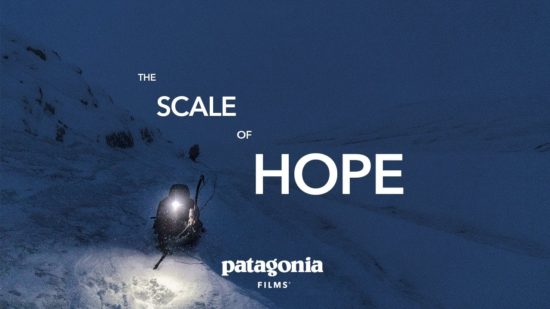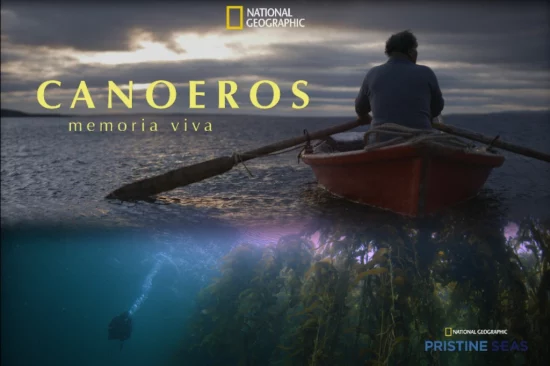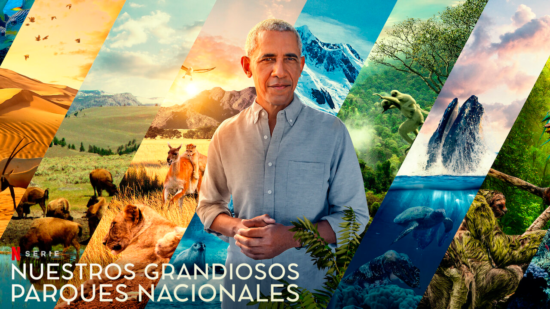3 documentaries on nature conservation


To reflect on the current climate emergency that urgently requires our action, as well as nature conservation, we invite you to watch 3 new documentaries that bring forth much-needed discussions on the future of our planet.

Starring Molly Kawahata, former climate advisor to the White House during the Barack Obama administration, and produced by the outdoor clothing brand Patagonia, this film takes the audience to Alaska. Molly Kawahata, in addition to being an advisor, is a dedicated environmentalist and mountaineer who decides to embark on a new expedition: to climb the mountains of the coldest state in the United States. The documentary portrays the entire process to prepare her for this challenge, while Molly works to create a new climate narrative that revolves around the question “What can I do to help?”
From there, this documentary offers beautiful images of nature along with thought-provoking reflections. For instance, it highlights the importance of creating effective policies in the face of climate change, making a call for systemic change through the power of voting to tackle what might be the greatest challenge of our times. This film is, without a doubt, worth watching for contemplation, and even better if accompanied by a chilled glass of Gran Reserva Sauvignon Blanc.
Watch the film here: https://www.patagonia.com/stories/the-scale-of-hope/video-124190.html . Duration: 67 minutes.

Produced by National Geographic and its marine conservation program Pristine Seas, this documentary filmed in southern Chile showcases an unprecedented expedition undertaken by members of the Kawésqar and Yagán indigenous communities to the Kawésqar National Reserve. The aim is to highlight the ecological richness, cultural heritage, and unique marine biodiversity of the area (one of the least studied and most unknown on the planet). The documentary also sheds light on the struggle that the Kawésqar indigenous communities are facing against the threat posed by the salmon farming industry.
Directed by Jon Betz and Brian Newell, both with extensive experience in storytelling about science and the natural world, the documentary aims to both support indigenous peoples in protecting their ancestral territory and advocate for the removal of salmon farms from this area. Because even though the Kawésqar National Reserve was designated as a protected area in 2019, it excluded fjords and meandering channels. “The Kawésqar National Reserve is already experiencing serious impacts by salmon farms located in areas of extraordinary purity, destroying one of the world’s unique ecosystems,” says Alex Muñoz, the Latin America Director of National Geographic Pristine Seas.
Watch the documentary here: https://www.youtube.com/watch?v=Bl2OktK_808
Duration: 55 minutes.

Narrated and produced by former President Barack Obama, this Netflix documentary series invites viewers to celebrate and discover the power of national parks through a journey across the world’s most iconic parks. After 3 years of research that took them across five continents and involved over 1,500 days of filming, the outcome is five episodes that allow viewers to travel from the beaches of Africa to the islands of Japan and the Great Barrier Reef in Australia. With astonishing scenery, every episode narrates the story of each national park, including its native, wildest animals, and vegetation. And we cannot fail to mention its second episode, dedicated entirely to the Chilean Patagonia and the 24 national parks it encompasses. Don’t miss the chance to watch this beautiful episode along with a glass of Chilean wine, like the Gran Reserva Carmenère.
You can check out the series on Netflix. Duration: 60 minutes per episode.
We comply with the highest standards of verified social and environmental performance, transparency, and legal responsibility to balance benefit and purpose.
We adopt an Impact Business Model, creating beneficial links between business, community, and environment.
The Gran Reserva vineyards are an important part of the project to conserve native forest areas and protect local biodiversity. Our native forests have the ability to retain rainwater and control the kind of climate change that results from water shortages.
We take care of 1,432 hectares of protected forests and, on average per vineyard, a total of 105 species of fauna and 48 species of registered flora.
Our effort to preserve nature begins with responsible water consumption. 99% of the water we use comes from surface and subterranean sources.
Our vineyards are drip irrigated, which translates to a 90% efficiency on water consumption, and over the past 3 years, we’ve reduced our water footprint by 10%.
All of our winemaking processes require the use of energy. Our choice to invest in clean, renewable energy reflects our desire to co-create a sustainable planet for the future.
100% of the electricity used to make the wines in the Gran Reserva collection come from renewable sources, including solar energy.
Concha y Toro has been certified under the Wines of Chile Sustainability Code since 2012, which means that our vineyards are officially recognized as sustainable vineyards.
The wines in our Gran Reserva collection are crafted entirely from estate-owned grapes in sustainably managed vineyards.